Related Research Articles

Robert James Walker was an American lawyer, economist and politician. An active member of the Democratic Party, he served as a member of the U.S. Senate from Mississippi from 1835 until 1845, as Secretary of the Treasury from 1845 to 1849 during the administration of President James K. Polk, and briefly as Territorial Governor of Kansas in 1857. He was responsible for drafting the 1849 bill that eventually established the United States Department of the Interior.
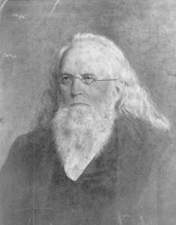
Sidney Breese, a lawyer, soldier, author and jurist born in New York, became an early Illinois pioneer and represented the state in the United States Senate as well as served as Chief Justice of the Illinois Supreme Court and Speaker of the Illinois House of Representatives, and has been called "father of the Illinois Central Railroad".
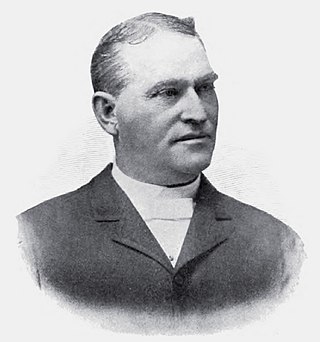
William Francis Fitzgerald was an American jurist who served on the Federal bench as an associate justice of the Arizona Territorial Supreme Court, as well as at the state level as an associate justice of the California Supreme Court. Other positions he held include California Attorney General and judge of the Superior Court of Los Angeles County.

Peter Marshall Hitchcock was an attorney, teacher, farmer, soldier, legislator, and jurist. His judicial career included 28 years service on the Ohio Supreme Court, 21 years of them as Chief Justice.
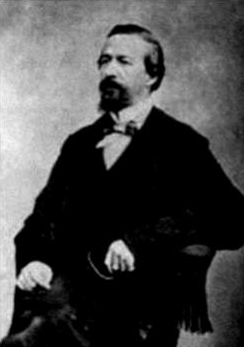
William Wirt Adams (1819–1888) was a banker, planter, state legislator, and a Brigadier General in the Confederate States Army.
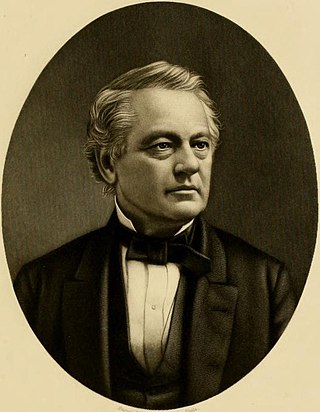
William Fitch Allen was an American lawyer and politician.
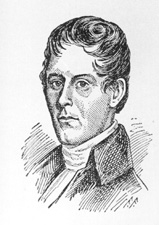
Powhatan Ellis was a justice of the Mississippi Supreme Court, United States senator from Mississippi, and a United States district judge of the United States District Court for the District of Mississippi.

The Supreme Court of Mississippi is the highest court in the state of Mississippi. It was established in 1818 per the terms of the first constitution of the state and was known as the High Court of Errors and Appeals from 1832 to 1869. The court is an appellate court. The court consists of nine justices elected in nonpartisan contests from three districts to serve eight-year terms. The most senior justice serves as the chief justice. It is housed in the Carroll Gartin Justice Building in Jackson, Mississippi, the state capital.
Ephraim Geoffrey Peyton was an American jurist, lawyer, and politician. He was judge of the High Court of Errors and Appeals of Mississippi from 1868 to 1870 and a justice of its successor, the Mississippi Supreme Court, from 1870 to 1876 including as chief justice.
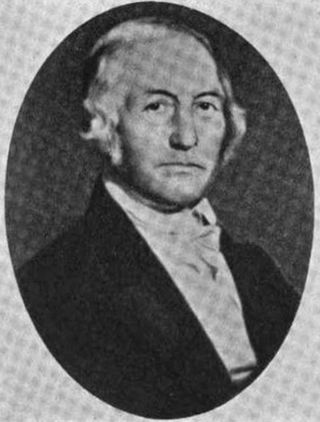
Titus Hutchinson was an American lawyer, politician, and judge in the state of Vermont. He served on the Vermont Supreme Court from 1825 to 1833 and as Chief Judge from 1831 to 1833.
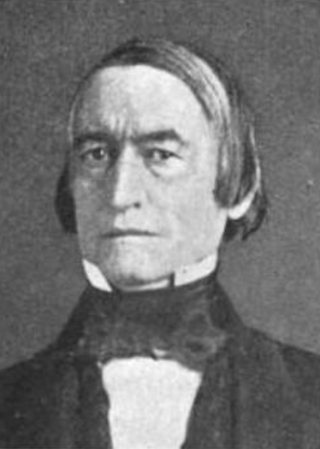
Cotesworth Pinckney Smith was an associate justice of the Supreme Court of Mississippi from 1832 to 1838, and again in 1840, and was chief justice from 1849 to 1861, returning to Associate Justice status from then until his death in 1862.
Edward Turner was a state legislator and public official who served as Justice of the Supreme Court of Mississippi from 1824 to 1832, and again from 1840 to 1843.
George W. Winchester was a justice of the Mississippi's supreme court from 1827 to 1829.
John Taylor was a justice of the Supreme Court of Mississippi, which was then called the High Court of Errors and Appeals, from 1818 to 1820.
Joshua Child was a justice of the Supreme Court of Mississippi from 1825 to 1831.
Thomas G. Shackelford was chief justice of the Supreme Court of Mississippi from 1868 to 1870.
Richard Forman Reed was an American state legislator and justice of the Supreme Court of Mississippi from 1912 to 1915.
Justice Montgomery may refer to:

Samuel Stillman Boyd, often referred to as S. S. Boyd or Judge Boyd, was a prominent attorney in early 19th-century Mississippi and one of the Natchez nabobs who stood at the apex of antebellum Mississippi society. He also served briefly as a judge, invested in cotton agriculture, speculated in real estate, engaged in large-scale enslavement, and advocated for pro-slavery causes. Boyd wielded significant political influence in his community, initially as a leader in the Whig Party. His name was considered for a seat on the U.S. Supreme Court in 1852 and 1860.

John W. Anderson was an American interstate slave trader and farmer based near Maysville, Mason County, Kentucky. Chief Justice of the U.S. Supreme Court John Marshall was an investor who funded Anderson's slave speculations. Anderson was involved in the establishment of the Forks of the Road slave market in 1833. Anderson was elected to the Kentucky General Assembly in 1836 but died before he could take office. A log-built slave jail established on Anderson's property is now on exhibit in the National Underground Railroad Freedom Center and is believed to be the only surviving rural American slave jail in existence.
References
- 1 2 3 4 Dunbar Rowland, ed., Encyclopedia of Mississippi History, Volume 2 (1907), p. 280.
- 1 2 Biographical and Historical Memoirs of Mississippi (1891), p. 450.
- 1 2 "At Home", The Natchez Weekly Courier (December 9, 1831), p. 6.
- 1 2 3 Thomas H. Somerville, "A Sketch of the Supreme Court of Mississippi", in Horace W. Fuller, ed.,The Green Bag, Vol. XI (1899), p. 506.
- ↑ The Mississippi Free Trader (October 14, 1840), p. 1.
- ↑ "Meeting of the Bar of Adams County", Mississippi Free Trader (October 1, 1845), p. 1.
- ↑ "Death of Judge Alexander Montgomery", The Clarion-Ledger (September 18, 1878), p. 2.